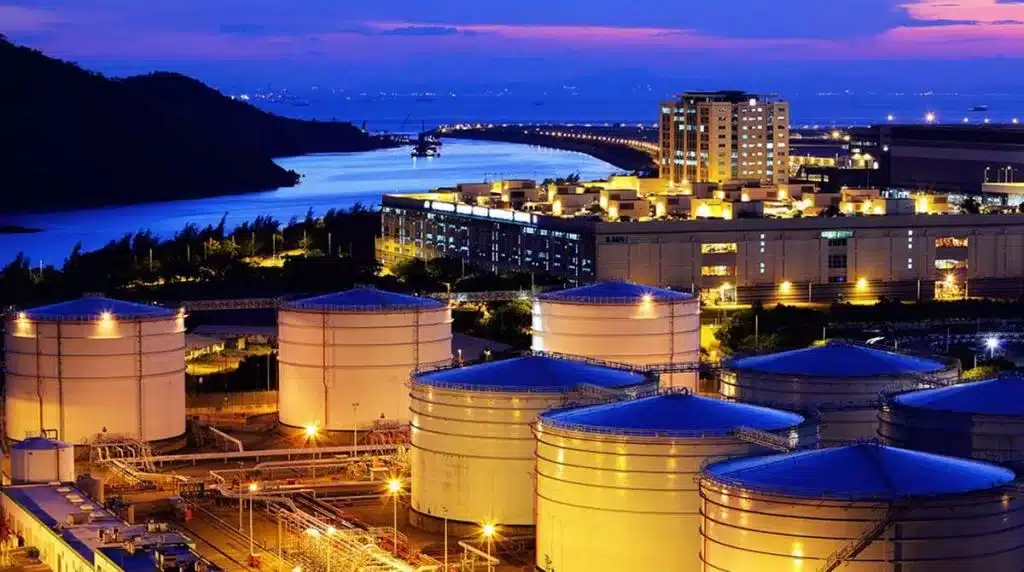
Key Operational Considerations for ULSD 10 PPM Sales in Mersin
Mersin is a key hub for petroleum product transactions, particularly for Ultra-Low Sulfur Diesel (ULSD) 10 PPM. Companies looking to conduct successful fuel transactions in the region must adhere to strict operational guidelines and ensure compliance with regulatory, logistical, and financial requirements. Below are the essential steps and critical factors to consider when conducting petroleum sales operations in Mersin.
1. Authorized Customs Broker Requirement
- A licensed customs broker authorized through a notary is mandatory for all transactions.
- The customs process involves regulatory clearances, import/export declarations, and taxation compliance.
2. Engagement with Survey Companies
- It is essential to contract with a recognized survey company such as SGS, Saybolt, Intertek, or Aymak.
- These firms ensure quality control, inspection, and certification of the product before, during, and after transfer.
3. Tank Storage Agreement
- A reliable storage tank facility must be secured in advance.
- Notable tank storage companies in Mersin include:

| Company | Storage Capacity (m³) |
|---|---|
| Turkis Enerji | 200,000+ |
| Balpet | 150,000+ |
| Kadoil | 100,000+ |
| Aves | 250,000+ |
| Global | 180,000+ |
- Monthly storage contracts are recommended, allowing flexibility for multiple shipments.
- Additional costs include loading, unloading, and guarantee letter payments.
4. Ship Handling Agent Requirement
- A ship handling agency is required to manage vessel reception, port coordination, and compliance procedures.
- The handling agent ensures seamless cargo unloading and minimizes delays in port operations.
5. Pricing Agreement and Contract Terms
- If the product is arriving via vessel, it is sold on a CIF MED basis.
- Once the product enters storage tanks, sales shift to FOB MED, reflecting its new status.
- Buyers must plan their purchases accordingly based on these pricing structures.
6. Escalation/De-escalation (ESC/DES) Responsibility
- The Escalation/De-escalation (ESC/DES) clauses should be entirely handled by the seller.
- Failure to manage these costs can lead to significant financial losses and unexpected expenses.
7. Planning Tank Storage and Guarantees
- Monthly contracts allow businesses to manage multiple shipments flexibly.
- A security deposit (guarantee letter) is required by storage companies, but this can often be arranged internally with a service fee.
8. Port Traffic Authorization
- Mersin’s port is highly congested; traffic authorization must be obtained in advance.
- The port authority determines berthing schedules, and delays may impact operational efficiency.
9. Q88 Form Submission
- The Q88 Vessel Questionnaire must be shared with the port before arrival.
- This document determines whether the port can accommodate the vessel.
10. Sanctions and Vessel Compliance
- It is crucial to verify that the vessel is not under international sanctions.
- Conduct a thorough compliance check before entering a purchase agreement.
11. Buyer’s Vessel Coordination
- Buyers should have a vessel positioned offshore in Mersin.
- Once the product is transferred to storage tanks, quick loading onto the buyer’s vessel can be arranged.
12. Documentation and Compliance
- Ensure that all necessary documents are prepared, including:
- Customs Declaration
- Packing List
- Injection Report
- Bill of Lading
- Quality Inspection Reports
13. Mandatory EK-1 Testing
- The EK-1 test is a mandatory requirement and should not be overlooked.
- Ensures that the product meets regulatory and environmental standards.
14. Contract Terms (RECAP & LEYCAN)
- Carefully review RECAP (Recapitulation) and LEYCAN (Laycan Period) documents.
- Misinterpretation of these terms can result in financial penalties or contractual disputes.
15. Payment and Financial Security
- Mersin transactions often involve products from sanctioned countries.
- LC, DLC, and SBLC are not accepted; transactions are completed via test-after-payment terms.
- Buyers must ensure financial liquidity before proceeding with purchases.
16. Port Infrastructure and Draw Depth Considerations
- Port berthing depth and infrastructure vary by terminal; vessels must comply with draft limitations.
- Typical draw depths in Mersin range from 12m to 18m, depending on the terminal.
- Tanker compatibility with port requirements must be confirmed in advance.
Escalation/De-escalation (ESC/DES) Mechanism
| Term | Definition | Impact on Transactions |
|---|---|---|
| Escalation (ESC) | A mechanism to increase prices based on rising costs (e.g., fuel, logistics, market fluctuations). | Buyers may face higher costs when external factors drive prices up. |
| De-escalation (DES) | A mechanism to reduce prices when costs decline due to favorable market conditions. | Buyers benefit from cost reductions in case of lower operational expenses. |
By following these operational guidelines, companies can ensure a smooth, compliant, and profitable petroleum trade operation in Mersin. ATABAŞ GRUP remains committed to providing expert consultancy and strategic guidance for secure transactions in the region.
